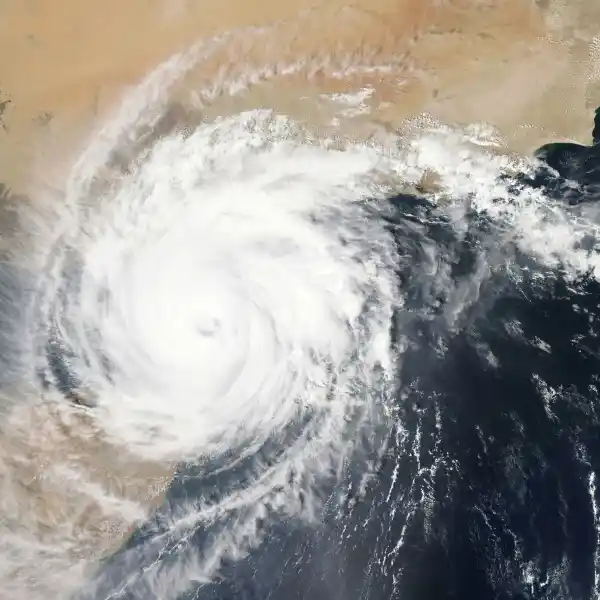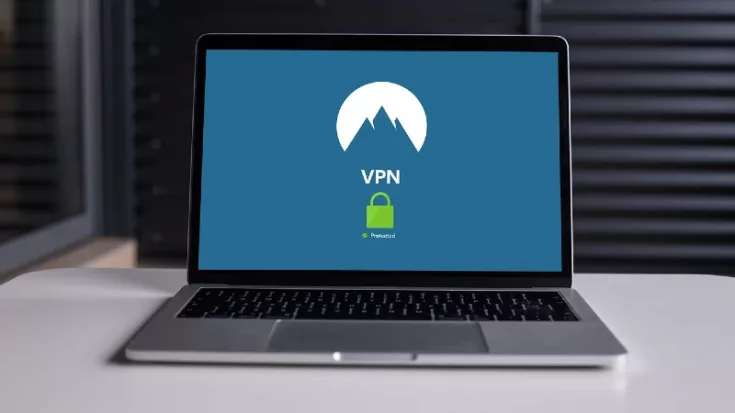Disclosure: This post may contain affiliate links, meaning we get a commission if you decide to make a purchase through our links, at no cost to you. Please read our disclosure for more info.
Last Updated on May 22, 2024 by Work In My Pajamas
Key Takeaways:
- Understand the differences between a hurricane watch and a warning.
- Learn effective preparation strategies for hurricane season.
- Discover safety measures to adopt during a hurricane.
- Access valuable resources for real-time updates and information.
In This Post:
What Is a Hurricane?
A hurricane is a powerful and complex weather phenomenon that forms over warm tropical waters and is characterized by strong winds, heavy rainfall, and storm surges. Cyclones or typhoons in other regions can cause immense damage to coastal and inland areas. Hurricanes develop from tropical depressions and storms and are driven by warm ocean waters and atmospheric conditions. These conditions create a spiraling storm system stretching hundreds of miles. The intensity of a hurricane is measured using the Saffir-Simpson scale, which categorizes these storms from Category 1 (the least severe) to Category 5 (the most severe) based on their sustained wind speeds and potential for damage. Understanding the nature of hurricanes and how they form is the first step in preparing for these powerful natural events.
Difference Between a Hurricane Watch and Warning
One critical aspect of hurricane preparedness is understanding the terminology used by weather authorities. Knowing the difference between a hurricane watch versus warning can significantly impact how well you prepare for an approaching storm. A hurricane watch indicates that hurricane conditions are possible within 48 hours, giving you time to make necessary preparations and plans, such as securing your home and gathering emergency supplies. On the other hand, a hurricane warning means that hurricane conditions are expected within 36 hours, signifying a more immediate threat. This warning indicates that you should complete your preparations and take shelter immediately. It is essential to stay updated about the status of a hurricane watch or warning to take prompt and appropriate action to protect your family’s and your safety.
Preparation Tips for Hurricane Season
- Create an Emergency Kit: Put together a thorough emergency kit with all the necessities, including non-perishable food, medications, first aid supplies, flashlights, batteries, identification, and insurance papers. Each person should have one gallon of water daily for at least three days. Ensure that the kit is in a portable container that is easy to carry if you need to evacuate quickly. Additionally, consider including items specific to your family’s needs, such as baby formula, pet food, and comfort items for children.
- Develop an Evacuation Plan: Having an evacuation plan is crucial. Identify local evacuation routes and plan where you will go if you must leave your home. Ensure that all family members know the plan and consider any special needs for elderly family members, pets, or individuals with disabilities. Practice the strategy to ensure everyone is prepared. Communication is vital, so establish a meeting point and a way to contact each other if you get separated.
- Protect Your Home: Take steps to protect your home from potential damage. Install storm shutters or plywood to safeguard windows and doors. Reinforce your roof and garage doors to withstand high winds. Additionally, secure any outdoor furniture or objects that could become projectiles during the storm. These measures can significantly reduce the risk of damage to your property. Reviewing your homeowner’s insurance policy to understand what is covered and make any necessary adjustments is also a good idea.
Safety Measures During a Hurricane
- Stay Informed: Keeping up with real-time updates from reliable sources is crucial during a hurricane. Monitor the National Hurricane Center (NHC) and local news channels for the latest information on the storm’s path, intensity, and evacuation orders. To stay informed, utilize multiple sources of information, including weather apps and NOAA Weather Radio. Having multiple sources of information can ensure you stay informed even if one source goes down, ensuring you are always aware of the latest developments.
- Stay Indoors: During the storm, staying indoors and avoiding going outside is essential. Find a small, windowless room on the lowest level of your home to take shelter. This reduces the risk of injury from flying debris and potential structural damage. Stay away from windows and doors, and have a battery-powered radio to receive updates in case of power outages. Ensure you have sufficient food, water, and medications in the shelter room to survive the storm.
- Use Generators Safely: If you use a generator during power outages, ensure it is used safely. Always run generators outside and away from windows to prevent carbon monoxide poisoning. Never use a generator indoors or in an attached garage, even if doors and windows are open. Proper ventilation is essential to avoid dangerous fumes. Additionally, ensure the generator is installed correctly and maintained, and always follow the manufacturer’s instructions for operation and safety.
Resources for Real-Time Updates and Information
Staying informed is crucial during hurricane season. Here are some valuable resources where you can get the latest updates and information:
- NOAA Weather Service: Provides comprehensive weather updates, emergency alerts, and preparedness information. This resource is invaluable for staying ahead of the storm and making informed decisions about your safety. NOAA’s website also offers detailed information about hurricane tracking, historical data, and safety tips to help you better understand and prepare for hurricanes.
- Ready.gov offers detailed guidance on preparing for hurricanes and other disasters. It covers everything from creating an emergency plan to understanding the potential impacts of hurricanes. Ready.gov is a resource for families, businesses, and communities to better prepare for and respond to hurricanes. The website also provides checklists, downloadable tools, and information on disaster recovery to support you before, during, and after a hurricane.
After the Hurricane: Recovery Tips
- Assess damage Safely: Once it is safe to go outside, carefully assess any damage to your home and property. Be cautious of downed power lines, gas leaks, and other hazards. Use caution when entering buildings and report any structural damage to authorities. Taking photos of the damage can help with insurance claims. Wear safety gear like gloves and sturdy shoes to protect yourself from jagged debris and other dangers when cleaning up.
- Contact Insurance Providers: Document any damage with photos and contact your insurance company to report claims. Please provide as much detail as possible and follow their guidelines for filing claims to expedite the process. Keep records of all communication with your insurance provider for future reference. Reviewing your insurance policy before hurricane season can help you understand your coverage and make necessary adjustments to ensure you are adequately protected.
- Seek Assistance: Take advantage of disaster relief programs that can offer help in the aftermath of a hurricane. Organizations such as FEMA, the Red Cross, and local government agencies may provide financial assistance, housing, food, and other resources. These initiatives aim to support communities in their post-disaster recovery and reconstruction. Additionally, connect with local community groups and volunteers who may offer support and assistance during recovery. Remember, recovery is a collective effort, and seeking help and support is crucial for rebuilding and healing after a disaster.
Conclusion
Preparing for hurricane season involves understanding the differences between watches and warnings, taking necessary precautions, and staying informed through reliable sources. Following the tips and safety measures mentioned in this article can protect yourself, your family, and your property during a hurricane. Remember, preparation and knowledge are critical to ensuring safety and minimizing damage during a storm. Stay alert, stay prepared, and stay safe. Preparing for a hurricane takes time and effort, but being proactive and vigilant can significantly impact your ability to weather the storm and recover afterward. Always put your and your loved ones’ safety first by making the necessary preparations and investing in resilience and knowledge.



